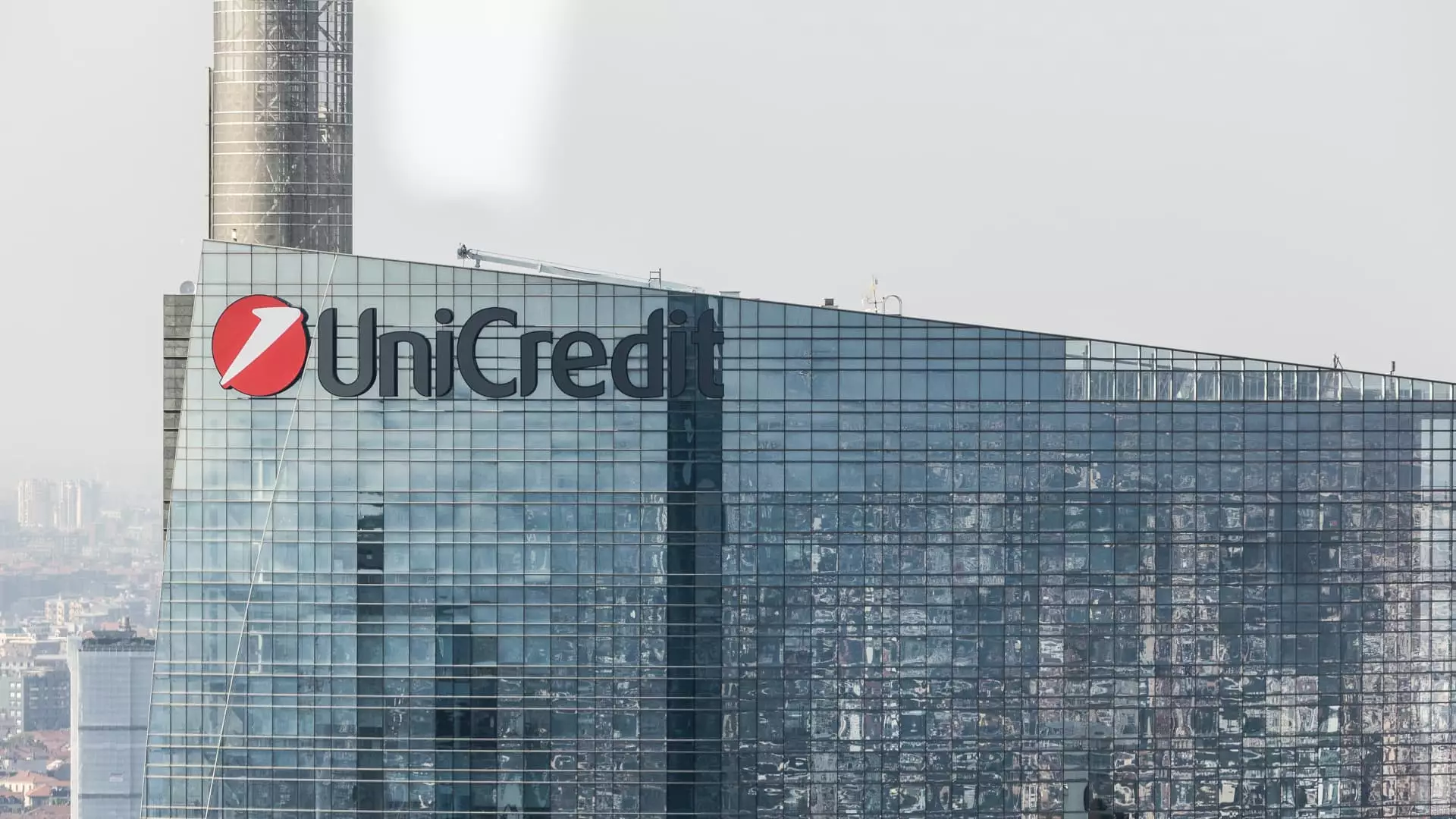On Wednesday, UniCredit, Italy’s second-largest banking institution, announced a significant escalation in its investment in Commerzbank, raising its potential stake to 28%. This increase, up from the previous 21%, encompasses a direct ownership of 9.5% alongside approximately 18.5% acquired through derivative instruments. This strategic maneuver reflects both ambitious growth intent and a broader vision for further consolidation within the European banking landscape.
In parallel with its heightened stake in Commerzbank, UniCredit has sought permission from the European Central Bank (ECB) to secure a stake that could reach as high as 29.9%. This move is symbolic of a calculated gamble by CEO Andrea Orcel, who, while pursuing opportunities to expand in Germany, is also simultaneously attempting to complete a €10 billion bid for Italian rival Banco BPM. The potential synergies from acquiring Commerzbank, combined with a solidification of its competitive position in Italy, position UniCredit as a formidable player in the European financial sector.
The press release from UniCredit underscores a strategic rationale behind this investment: a belief in the untapped value within Commerzbank and a commitment to the economic viability of Germany’s banking sector. Analysts suggest that Orcel’s long-term intentions may involve sweetening the bid for Banco BPM, potentially introducing a cash component that could enhance the merger’s appeal. This signifies a dual approach to not only solidify its position within Italy but also to expand its footprint in Germany.
Despite these aggressive moves, UniCredit faces challenges that could derail its ambitions. The German government, which retains a 12% stake in Commerzbank after trimming its holdings, has historically been resistant to foreign takeovers, particularly those stemming from institutions benefiting from past bailouts. The recent political upheaval in Germany, exemplified by Chancellor Olaf Scholz’s no-confidence vote and subsequent call for fresh elections, adds another layer of complexity. The current instability within Germany’s government may influence their stance on mergers and acquisitions, especially concerning a significant player like UniCredit.
Moreover, as Commerzbank prepares for a strategic update scheduled for February 13, the institution has been reticent in providing commentary on the potential deal, only acknowledging the announcement made by UniCredit. This silence could suggest internal deliberations or caution regarding future steps, emphasizing the need for all parties to navigate this negotiation landscape with care.
UniCredit’s stock saw a 1.1% increase early Wednesday, reflecting an enthusiastic reception from investors regarding this heightened stake in Commerzbank. Similarly, Commerzbank’s shares experienced a 3.1% rise, underscoring a positive market sentiment towards the prospects of consolidation within the sector. If successful, this merger could yield synergies across capital markets, advisory services, and payments, reinforcing the operational efficiencies that come with larger consolidations.
While UniCredit’s incremental investment in Commerzbank signals a bold strategy for expansion in the European banking sector, the path forward is fraught with regulatory, political, and operational challenges. The outcome of these maneuvers could redefine market dynamics and shape the competitive landscape in both Germany and Italy.

